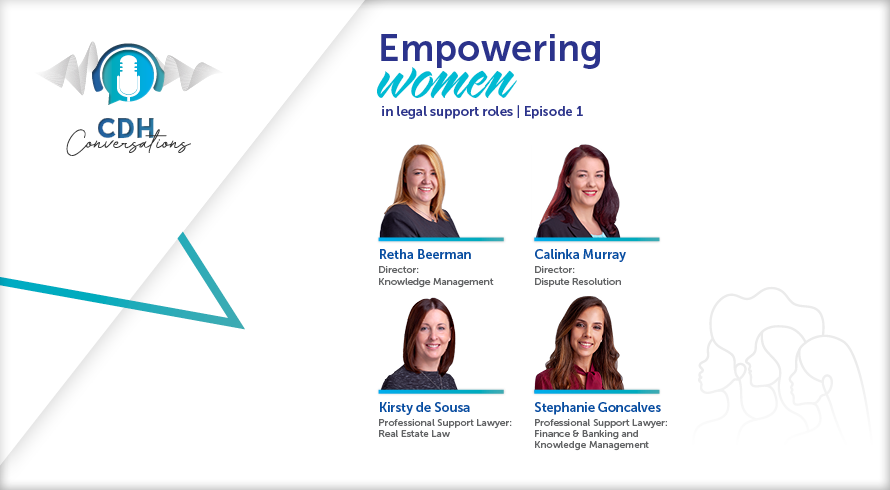Ongoing review of the venture capital company regime
Various legislative amendments to s12J have given rise to an increased participation in the asset class, evidenced by the increasing number of approved VCCs. To date, the South African Revenue Service’s (SARS) website indicates that 90 companies have been approved as VCCs, while 2 have had their VCC status withdrawn.
However, there are certain administrative and technical concerns that have plagued s12J, which has resulted in a slow up-take in the VCC regime. Some of these issues are discussed in more detail below.
Investment income threshold
Section 12J(5)(b) requires that the sole object of a VCC must be the management of investments in “qualifying companies”. Paragraph (f) of the definition of “qualifying company” in s12J(1) includes a company where the sum of the investment income derived by that company during any year of assessment does not exceed an amount equal to 20% of the gross income of that company for that year.
Small enterprises are often organised as groups of companies, where an operating company holds controlling interests in other operating companies. VCCs are often unable to subscribe for shares in these small operating companies due to paragraph (f) of the definition of “qualifying company”. More specifically, where the operating company receives dividends from a subsidiary operating company in excess of 20%, the first mentioned operating company will not be a “qualifying company”.
Controlled company test
As set out above, s12J(5)(b) requires that the sole object of a VCC is the management of investments in “qualifying companies”. A “qualifying company” is defined as, inter alia, a company that is not a “controlled group company” in relation to a group of companies.
Briefly, a “controlled group company” is a company that has a corporate shareholder that holds, directly or indirectly, at least 70% of the shares in that company.
Section 12J does not expressly state at which point the “controlled group company” test needs to be applied, which has resulted in numerous practical difficulties for VCCs.
Connected person test
With effect from 1 January 2017, s12J(3A) was amended so that the “connected person” test is deferred until the end of the third year of the first share issue, and each year thereafter.
Basically, the “connected person” test provides that if, at the end of any year of assessment, after the expiry of a period of 36 months commencing on the first date of the issue of the venture capital shares, an investor is a “connected person” in relation to that VCC:
- no deduction will be allowed in respect of such expenditure;
- the Commissioner for SARS must, after due notice to the VCC, withdraw the approval of the company as a VCC retrospectively; and
- an amount equal to 125% of the expenditure incurred in the acquisition of the company’s shares by any person must be included in the income of the company, in the year of assessment in which the approval is withdrawn,
- if corrective steps, acceptable to the Commissioner for SARS, are not taken by the company within a period stated in the notice given by the Commissioner.
Before this amendment, the errant investor (ie the taxpayer who was a “connected person” in relation to the VCC) was penalised by not being entitled to claim the s12J(2) deduction. After this amendment, however, where a taxpayer is a “connected person” in relation to a VCC, the Commissioner must, inter alia, withdraw the approval of the company as a VCC with effect from the date of the approval.
Proposal
In an attempt to encourage investment of equity into SMEs and junior mining companies, the Budget proposes that s12J be amended:
- to address rules relating to the investment income thresholds in the “qualifying company” test;
- to address at which point the “controlled group company” test needs to be applied; and
- to review the retrospective withdrawal of VCC status with reference to the “connected person” test.
These proposals illustrate National Treasury’s ongoing commitment of ensuring that VCCs enable much-needed capital for SMEs.
The information and material published on this website is provided for general purposes only and does not constitute legal advice. We make every effort to ensure that the content is updated regularly and to offer the most current and accurate information. Please consult one of our lawyers on any specific legal problem or matter. We accept no responsibility for any loss or damage, whether direct or consequential, which may arise from reliance on the information contained in these pages. Please refer to our full terms and conditions. Copyright © 2025 Cliffe Dekker Hofmeyr. All rights reserved. For permission to reproduce an article or publication, please contact us cliffedekkerhofmeyr@cdhlegal.com.
Subscribe
We support our clients’ strategic and operational needs by offering innovative, integrated and high quality thought leadership. To stay up to date on the latest legal developments that may potentially impact your business, subscribe to our alerts, seminar and webinar invitations.
Subscribe




